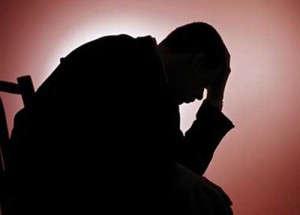The team at Ultimate Youth Worker are currently developing our “Model of Effective Youth Work Practice” which will guide how we work as youth workers and how we teach youth work to those in the industry. We believe that excellence mean being effective and innovative and as such we are creating a guide for the development of practice excellence. One of the pillars of successful youth work we hold to is that of reflective practice.
Reflective practice is by no means a new idea in the field but it is one that is not widely implemented. Reasons for this are wide and varied but are mostly end up being because people do not know how to do it or what it would look like. In university courses there is often discussion about being critically reflective and aware of your work however when a student becomes a staff member the critical thinking is left behind an ever growing wall of bureaucracy and paperwork. This often leads to frustration on the part of the staff member and in more extreme cases a complete break down in effective service delivery.
Now I hear some of you saying ‘yeah, but isn’t that what supervision is for?’, and quite a valid point you make. in a perfect world supervision would provide an opportunity for staff to reflect on their practice. However, the world is rarely ever perfect. Many of the youth workers we speak to rarely have a supervision session if any. Those that do have them often speak of them as robotic and machinistic, or as one youth worker told us ‘just a way for the organisation to tick another box to cover their butts‘. For the rare few there are times provided for them to think critically about their practice and its effect on them and their client and learn from their experience. We believe that critical reflection should not be a little bit tacked on to the end of a supervision session for the lucky few, but a whole of practice approach to every aspect of what we do!!!
Boud (2001) states, “Reflection involves taking the unprocessed, raw material of experience and engaging with it to make sense of what has occurred. It involves exploring often messy and confused events and focusing on the thoughts and emotions that accompany them. It can be undertaken as an informal personal activity for its own sake, or as part of a structured course“. Reflective practice comes in many shapes and formats and depending on your organisation, the resources available to you and your level of expertise this can look very different in one setting over another. Over the coming months we will discuss some of the ways individuals, organisations and the youth work sector as a whole can implement reflective practices into their daily structures. However, for today we will begin by looking at something every individual youth worker can do to develop their own reflective practice… Journaling.
When I was a young youth worker I completed an internship with a small organisation that trained youth workers to work in schools. One of the most interesting aspects of the internship (and the one I most struggled with) was a forced weekly journalling session. Some of my best reflections on where I was at as a youth worker, what I needed to work on and how I practiced came during this time. However, I struggled with the exercise because I was not given a reason to do it. I struggled because I was not given a format or template to do it. But most of all I struggled because critical reflection was not something that had been instilled in me as a youth worker either in practice or study.
Moon, in her 1999 article, states the following reasons why journaling helps in the process of learning from experience:
- To deepen the quality of learning, in the form of critical thinking or developing a questioning attitude
- To enable learners to understand their own learning process
- To increase active involvement in learning and personal ownership of learning
- To enhance professional practice or the professional self in practice
- To enhance the personal valuing of the self towards self-empowerment
- To enhance creativity by making better use of intuitive understanding
- To free-up writing and the representation of learning
- To provide an alternative ‘voice’ for those not good at expressing themselves
- To foster reflective and creative interaction in a group
Journaling provides a great base for the individual worker to begin to develop their reflective practice. Here is one template i have come accross that has worked over the years to help me reflect on my practice.
- Identify and describe the experience/issue/ decision/incident
-
Identify your strengths as a practitioner
-
Identify your feelings thoughts; values, feelings and thoughts of others involved
-
Identify external and internal factors; including structural/oppressive factors etc
-
Identify factors you have influence or control over and those you don’t ( do others?)
- Identify knowledge used:
- factual
- theoretical
- practice
-
Develop an action plan: what do I need to do first, second and third and so on
Impliment your action plan, then do it all over again.
Let us know how you go on facebook and twitter.
References
Boud, D. (2001). Using journal writing to enhance reflective practice. In English, L. M. and Gillen, M. A. (Eds.)Promoting Journal Writing in Adult Education. New Directions in Adult and Continuing Education No. 90. San Francisco: Jossey-Bass, 9-18.
Moon, J. (1999). Reflection in Learning and Professional Development. London: Kogan Page
Let us know how you go on facebook and twitter.

